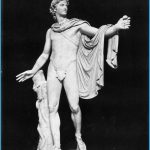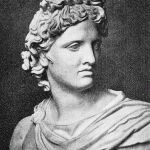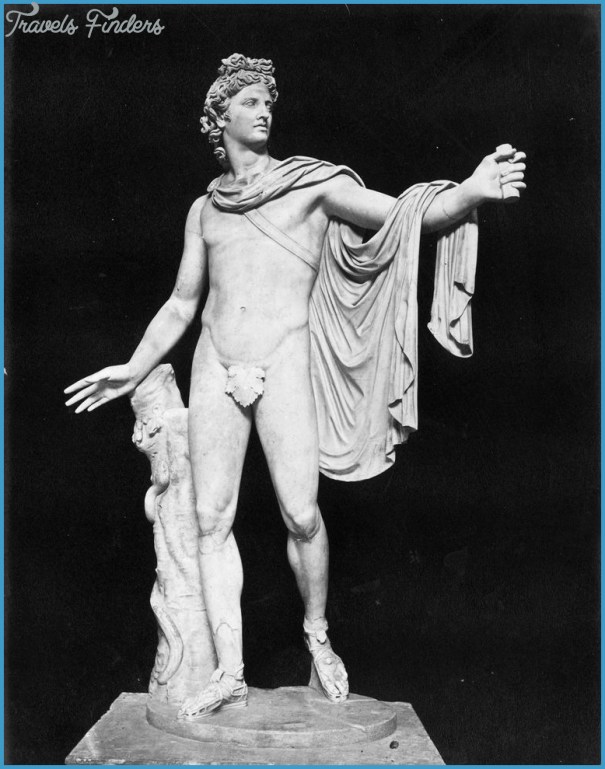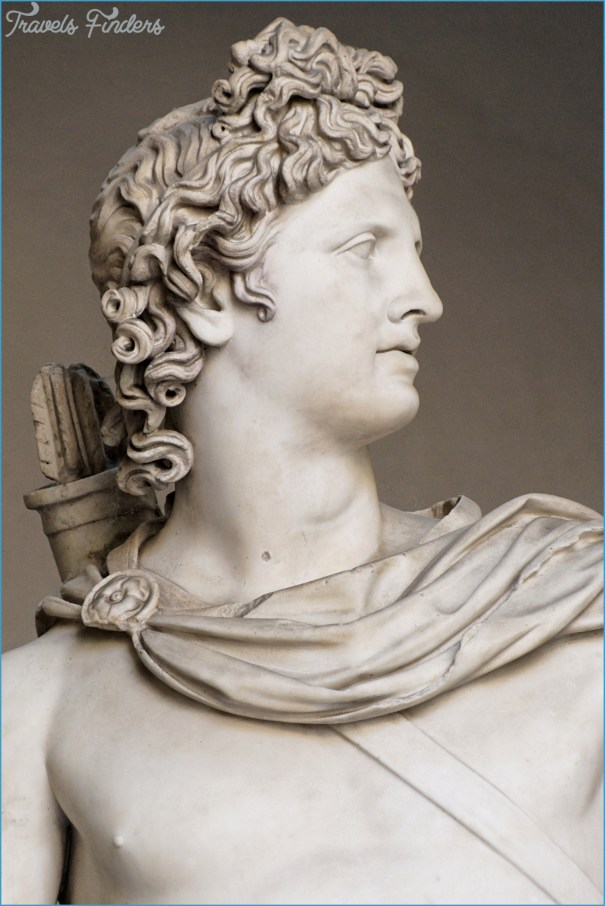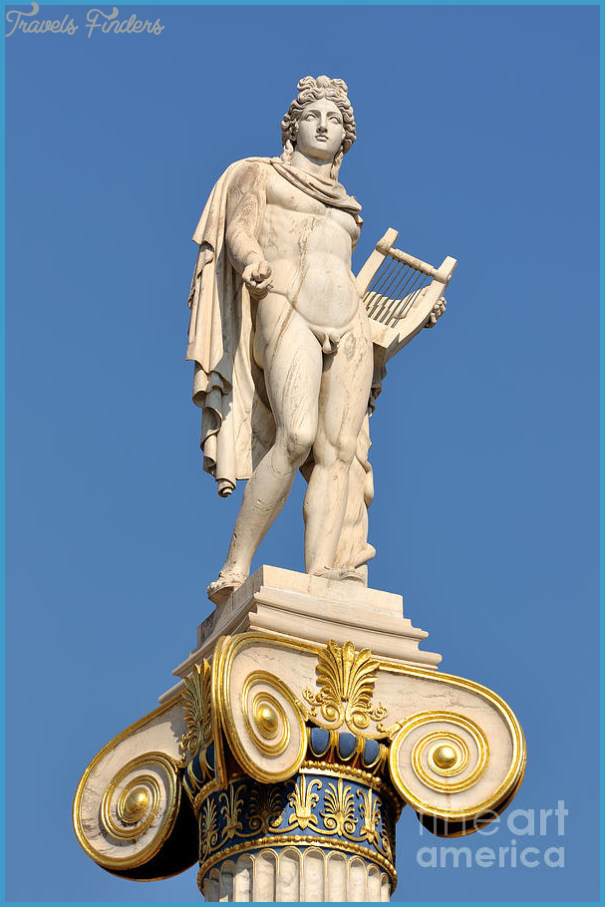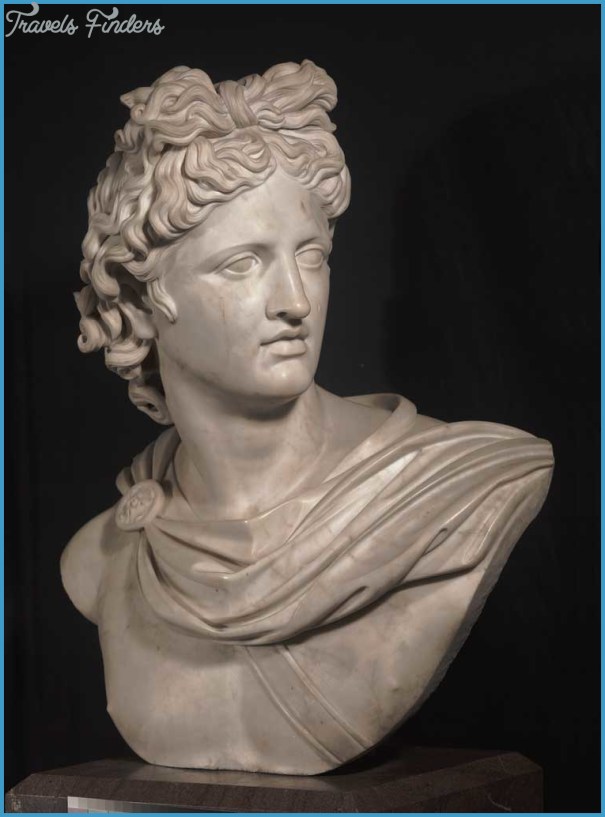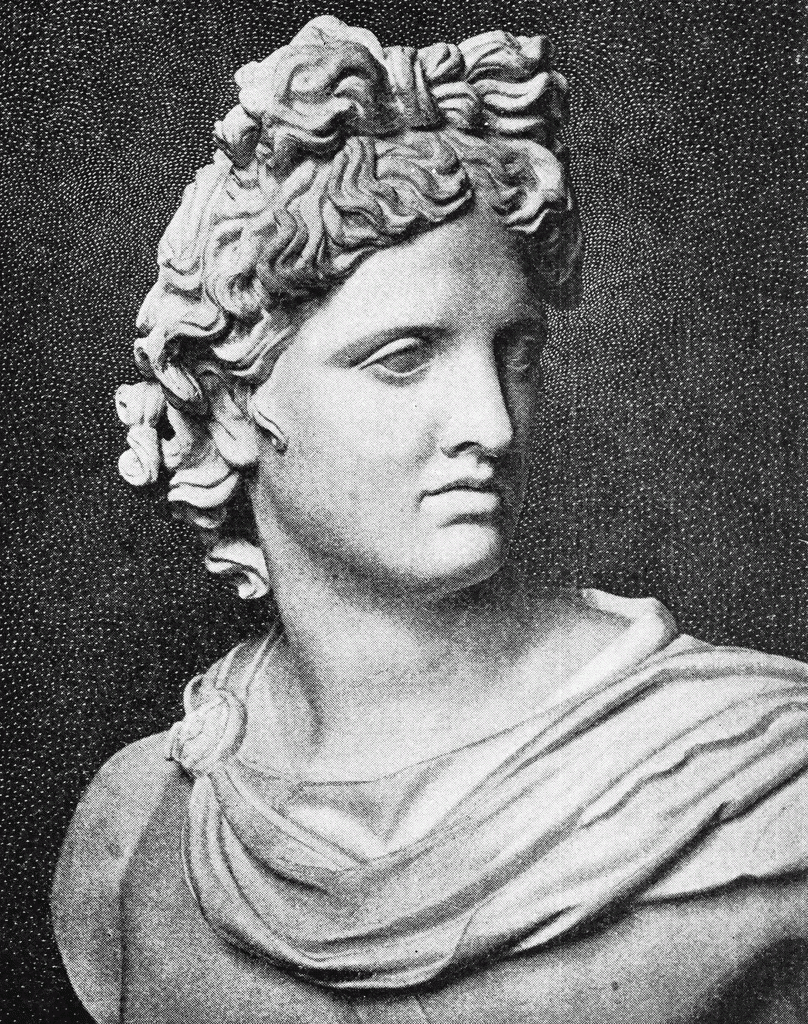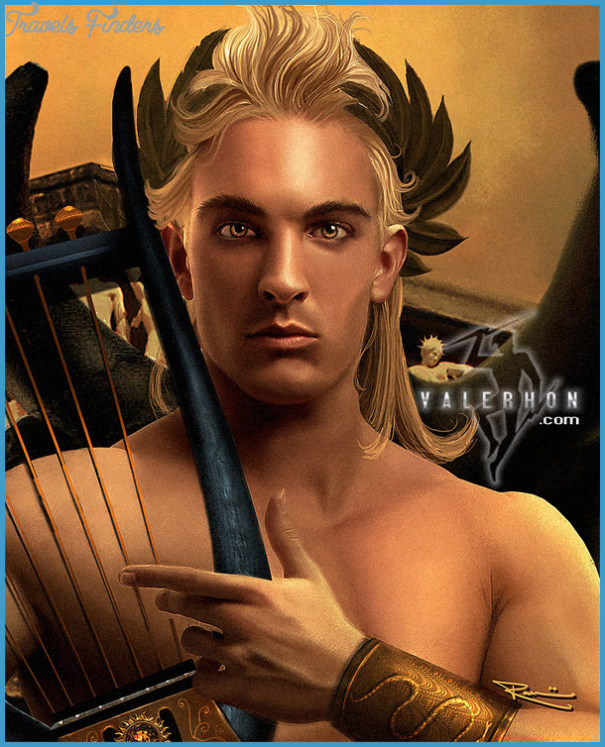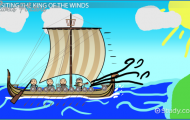In the Eurotas valley and its surrounding mountains the divine seems palpable. Mythology tells that at Amyclae god did once walk with human when Apollo fell in love with the beautiful young athlete Hyacinthus. But Zephyrus, the West Wind, also loved the youth and, shunned, was consumed by jealousy. So when Apollo and Hyacinthus were competing with each other in games, Zephyrus caused Apollo’s discus to veer from its path and deliver Hyacinthus a mortal blow. Apollo could not save his lover, but in tribute caused flowers to blossom from the dead boy’s blood the hyacinth, whose petals bore, so Greeks perceived, the letters ‘ai ai’, the sound made in lament, in everlasting memory of Apollo’s tears.
Apollo & Hyacinthus Photo Gallery
In historical times an annual three-day early summer festival was held at Amyclae. Its focus was Hyacinthus tomb, a chamber built into the base of a colossal throne, topped by a statue of Apollo, 14 m tall. The Hyacinthia promised rebirth after death – ritual mourning for the fallen hero was followed by a celebration of his resurrection as Apollo-Hyacinthus.
Leda & the Swan
The porous boundary between human and divine winds through many of Sparta’s myths, not least those associated with Leda’s children. Leda was married to Sparta’s King Tyndareus, but still Zeus desired her. Fearing that she would rebuff him, Zeus waited until Leda was walking by the River Eurotas. Then, transforming himself into a swan and pursued by one of his own eagles, he plummeted to earth in a flurry of feathers. Leda instinctively protected the trembling bird but, as she clutched him in her arms, Zeus seized the opportunity and raped her. Nonplussed, the queen returned home, where Tyndareus consoled her by making love to her. In time Leda was delivered of two eggs, one of which hatched twin girls, the other twin boys. Because of their mixed patrilineage, two of the siblings were mortal, the other two immortal.
The myth of Leda and the Swan as depicted on a Roman mosaic in Paphos, Cyprus.

